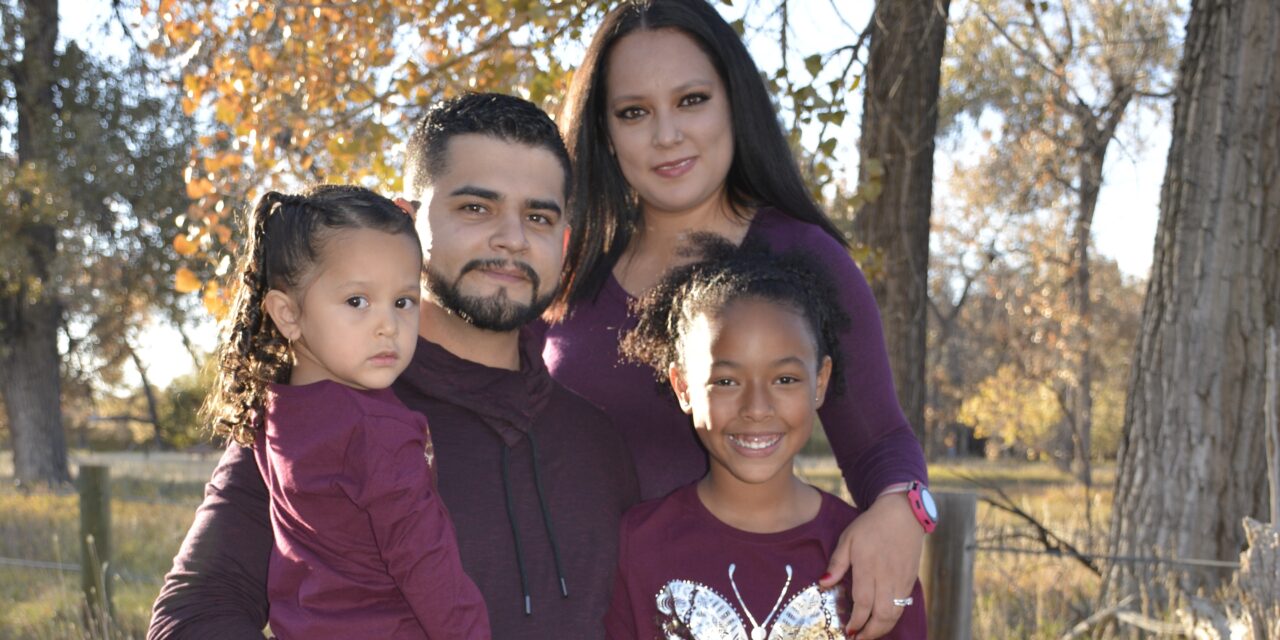My name is Sonia Martinez. I am a Certified Nursing Assistant working to help treat patients with COVID-19 at University of Colorado Hospital in Aurora, Colorado. I am also one of the 650,000 Deferred Action for Childhood Arrivals recipients in the United States today.
According to the government, I am an essential worker. I’m married to a DACA recipient who also works in an essential field. We have two young daughters together, and we have both continued working during the pandemic—exposing ourselves and our family to COVID-19—to help fight the virus and serve our communities alongside our American-born counterparts.
Our dreams are probably the same as most families across the United States—we want to provide a good, stable life for our girls and give them every opportunity to pursue their talents and dreams so they can reach the full potential that we see inside of them.
It is hard to describe the challenges that we have faced in succeeding as young undocumented parents in the United States. DACA has allowed us to work hard and build a great life for our girls, but the Supreme Court will issue a decision soon that could change everything. President Trump may use the decision to try to hold us hostage to implement his immigration agenda, to keep our families from ever obtaining status in the United States, or worse. We cannot let that happen.
I came to the United States 20 years ago with my mom. She brought me here to escape violence and provide me with an opportunity to build a better life.
Throughout my childhood I witnessed my mother struggle to provide for her kids, including my two younger siblings who suffered from severe respiratory issues. That is what sparked my interest in the medical field. My goal is to become a respiratory therapist, and to open my own practice where I would be able to help kids who suffer the way that my brother and sister did. I would also like to be able to volunteer abroad to help families where specialized treatment is not available.
I have had DACA since the program was first announced in 2012, and it has completely transformed my life. DACA made it possible for me to go to college and get a good job. And the program has allowed my husband and I to plan in ways that were not imaginable just a few years ago. We were able to buy a house, and I am studying to be able to take the next step in my career.
But all those plans may soon come to a halt. We do not know how much longer we will be able to work or continue to provide for our U.S. citizen daughters if the Supreme Court decides to let the president remove our DACA protections.
The House of Representatives passed the American Dream and Promise Act over a year ago, but the Senate has refused to do anything since. The bill would open a path to permanent status for DACA recipients and those in similar situations—people who have been living and working in the United States for decades in most cases.
But the president has been waiting for the Supreme Court to allow him to end DACA so he can try to force Congress to accept his immigration agenda, threatening to tear families like ours apart if they refuse to do so.
But DACA should not be tied to any other immigration changes. We have played by the government’s own rules and relied on its promises. What else do we have to do to prove ourselves and achieve equality?
If working on the front lines to protect Americans during a global pandemic, exposing ourselves and our families to do so, is not enough, then what is? How much more can we possibly give?
All we want is a fair shot to be able to provide for our families, and to continue to contribute to our communities without the constant fear of being torn apart by the government. We need Congress and the president to finally do the right thing.
Sonia Martinez is a DACA recipient living in Denver, Colorado.
FILED UNDER: covid-19, DACA


